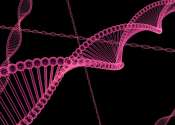'Love hormone' improves attachment issues in people with autism
Oxytocin, often dubbed the "love hormone," is known to promote social bonding. Researchers at KU Leuven have now discovered that administering oxytocin to adult men with autism makes them more open to close emotional bonds ...
Jan 22, 2020
1
476







